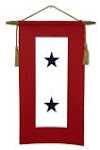skip to main |
skip to sidebar
EVEN A BROKEN CLOCK IS RIGHT TWICE A DAYEVEN A HOPELESS CHAUVINIST CAN GET IT RIGHTON OCCASION In My Fair Lady, Professor Henry Higgins lets loose with a famous tirade against all womanhood which contains these memorable lines:
In My Fair Lady, Professor Henry Higgins lets loose with a famous tirade against all womanhood which contains these memorable lines:Women are irrational, that's all there is to that!
Their heads are full of cotton, hay, and rags.
They're nothing but exasperating, irritating, vacillating,
calculating, agitating, maddening and infuriating hags!
Higgins is, of course, being vastly unfair with this mean-spirited sweeping condemnation based on tired old chauvinist stereotypes. Such generalizations about all women should not be tolerated!...even if, in selected instances, he totally NAILS it:JANEANE GAROFALO + SPLEEN + VENT = COMEDY? In an appearance at the 9:30 Club in Washington, D.C. on Aug. 21, [the increasingly tatted and decreasingly funny Janeane] Garofalo ripped into tea party protesters, or what some of the wizards of smart on the left have deemed “tea baggers”…
In an appearance at the 9:30 Club in Washington, D.C. on Aug. 21, [the increasingly tatted and decreasingly funny Janeane] Garofalo ripped into tea party protesters, or what some of the wizards of smart on the left have deemed “tea baggers”…“Do you remember tea baggers?” Garofalo said. “It was just so much easier when we could just call them racists. I just don’t know why we can’t call them racists, or functionally retarded adults…
“The functionally retarded adults, the racists – with their cries of, ‘I want my country back,’” she said. “You know what they’re really saying is, ‘I want my white guy back.’ They apparently had no problem at all for the last eight years of habeas corpus being suspended, the Constitution being sh*t on, illegal surveillance, lied to on a war or two, two stolen elections – yes, the John Kerry one was stolen too. That’s not tin-foil hat time...
“Our media is quite happy to report on any stolen election around the world, any stolen election around the world except ours,” Garofalo said. “And it’s just unexamined narcissism. It’s just, if you were to say this to the average American, ‘You know they steal elections in Uganda.’ ‘Yeah.’ ‘You know they steal elections in America.’ ‘Why do you hate America?’ ‘Why didn’t you ask me why do you hate Uganda?
“This is not politics, this is neuroscience. It is purely limbic brain activity – this emotion over being angry that there’s a black guy in office, with the people showing up armed to the health care meetings – to whatever, the town halls… It makes me soul sick.”
Indeed.Some sort of sick, in any case.Somebody help this woman. Let's pass the hat.
A SHORT VACATION BUT A LONG, HOT SUMMER:
THE AMAZING WILTING PRESIDENT
Fouad Ajami at the Wall Street Journal lays out a withering assessment of the Great Obamatron Disenchantment now in progress, among the massed voting blocks slowly recovering from their temporary insanity of last fall. Money quotes:In one of the revealing moments of the presidential campaign, Mr. Obama rightly observed that the Reagan presidency was a transformational presidency in a way Clinton's wasn't…
The failure of the Carter years was, in Reagan's view, the failure of the man at the helm and the policies he had pursued at home and abroad. At no time had Ronald Reagan believed that the American covenant had failed, that should apologize for itself in the world beyond its shores. There was no narcissism in Reagan…
In contrast, there is joylessness in Mr. Obama. He is a scold, the "Yes we can!" mantra is shallow, and at any rate, it is about the coming to power of a man, and a political class, invested in its own sense of smarts and wisdom, and its right to alter the social contract of the land. In this view, the country had lost its way and the new leader and the political class arrayed around him will bring it back to the right path.
Thus the moment of crisis would become an opportunity to push through a political economy of redistribution and a foreign policy of American penance…
Sssss-s-s-s-s-s-s-s
IN A SIMILAR VAIN:
Chris Stirewalt at The Washington Examiner declares the bloom to be off the romance of the rose between the slobbering press and the insufferable vanitas of the Obama machine.
[hat-tips both: Instapundit]TREND-SPOTTING:THE RETURN OF 'HIPPIE SH*T'This is actually last winter's story, since I first noticed it when shopping in Houston over Christmas: the very, very depressing return of fashion merchandise based on what we blithely categorize as 'hippie sh*t'. What would be best consigned, unlamented and unremembered, to the dustbin, trash heap, rubbish tip, dumpster of history -- the love beads, the fringe vests, the embroidered jeans, the tie-dyed tees, the sprinkle of hot-pink daisies, the haze of doobie-smoke -- is once again fashionable, being marketed from Walmart to Filene's.At the time I credited this immediately to the coming of the Obamessiah -- and patted myself on the head for the prescience of my post of October '08, about the 'new' White House decor we could look forward to: Now it's everywhere. So it was hardly surprising to learn [upon discovering that my Newfoundland rental car had Sirius satellite radio, including an all-Broadway network] that there had been a hugely successful 2009 revival of that profound study of late 20th-century social reality, HAIR -- the American tribal love-rock musical -- the navel-gazing, free-loving, peacenikety, draft-card-immolating blasphemenomenon of 1965.If, like me, your only exposure to the complete work in performance was the Milos Forman film of 1979, here are some scenes you missed, according to the Wikipedia synopsis of the original script:
Now it's everywhere. So it was hardly surprising to learn [upon discovering that my Newfoundland rental car had Sirius satellite radio, including an all-Broadway network] that there had been a hugely successful 2009 revival of that profound study of late 20th-century social reality, HAIR -- the American tribal love-rock musical -- the navel-gazing, free-loving, peacenikety, draft-card-immolating blasphemenomenon of 1965.If, like me, your only exposure to the complete work in performance was the Milos Forman film of 1979, here are some scenes you missed, according to the Wikipedia synopsis of the original script:Berger gives a joint to Claude that is laced with a hallucinogen. Claude starts to trip as the tribe acts out his visions ("Walking in Space"). He hallucinates that he is skydiving from a plane into the jungles of Vietnam. Berger appears as General George Washington and is told to retreat because of an Indian attack. The Indians shoot all of Washington's men. General Ulysses S. Grant appears and begins a roll call: Abraham Lincoln (played by a black female tribe member), John Wilkes Booth, Calvin Coolidge, Clark Gable, Scarlett O'Hara, Aretha Franklin, George Custer.
Claude Bukowski is called in the roll call, but Clark Gable says "he couldn't make it". They all dance a minuet until three African witch doctors kill them – all except for Abraham Lincoln who says, "I'm one of you". Lincoln, after the three Africans sing his praises, recites an alternate version of the Gettysburg Address ("Abie Baby"). Booth shoots Lincoln, but says to him, "I ain't dying for no white man".
As the visions continue, four Buddhist monks enter. One monk pours a can of gasoline over another monk, who is set afire (reminiscent of the self-immolation of Tri Quang Duc) and runs off screaming. Three Catholic nuns strangle the three remaining Buddhist monks. Three astronauts shoot the nuns with ray guns. Three Chinese people stab the astronauts with knives. Three Native Americans kill the Chinese with bows and tomahawks. Three green berets kill the Native Americans with machine guns and then kill each other.
A Sergeant and two parents appear holding up a suit on a hanger. The parents talk to the suit as if it is their son and they are very proud of him. The bodies rise and play like children. The play escalates to violence until they are all dead again. They rise again ("Three Five Zero Zero") and, at the end of the trip sequence, two tribe members sing, over the dead bodies, a melody set to a lyric about the nobility of Man ("What A Piece of Work Is Man").
EX-SQUEEZE ME? Could anybody but a Bill Ayers type feel nostalgic about this twaddle? ["Gimme a head with hair/ Long beautiful hair/ Shinin', gleamin', streamin', flaxen, waxen"/ Put it on an empty head/ Hangin' in vacant eyes/ Here baby, there mama / no problem so big it can't be solved by explosives............]Ahem.Some comments about the "themes" in Hair, from the Wiki-tooters:
["Gimme a head with hair/ Long beautiful hair/ Shinin', gleamin', streamin', flaxen, waxen"/ Put it on an empty head/ Hangin' in vacant eyes/ Here baby, there mama / no problem so big it can't be solved by explosives............]Ahem.Some comments about the "themes" in Hair, from the Wiki-tooters:Religion appears both overtly and symbolically throughout the piece, and it is often made the brunt of a joke. Berger sings of looking for "Donna", which takes on the double meaning of the woman he's searching for and the Madonna. During "Sodomy", a hymn-like paean to all that is "dirty" about sex, the cast strikes evocative religious positions: the Pietà and Christ on the cross. Before the song, Woof recites a modified rosary. In Act II, when Berger gives imaginary pills to various famous figures, he offers "a pill for the Pope"... Claude becomes a classic Christ figure at various points in the script. In Act I, Claude enters, saying, "I am the Son of God. I shall vanish and be forgotten," then gives benediction to the tribe and the audience. Claude suffers from indecision, and, in his Gethsemane at the end of Act I, he asks "Where Do I Go?". There are textual allusions to Claude being on a cross, and, in the end, he is chosen to give his life for the others. Berger can be seen as a John the Baptist figure, preparing the way for Claude.
More from the synopsis:After handing out imaginary pills to the tribe members, saying the pills are for high profile people such as Richard Nixon, the Pope, and "Alabama Wallace", Berger relates how he was expelled from high school ("Goin' Down")... Claude returns from his draft board physical, which he passed. He pretends to burn his Vietnam War draft card, which Berger reveals as a library card. [ring any bells?????!!!!!] Claude agonizes about what to do about being drafted.
I would add to this the observation of a high school friend of mine, a girl with a beautiful sweet soprano voice that could lovingly embrace three octaves in range. She saw a production of Hair in San Francisco, and was shocked to discover that a beautiful song she enjoyed singing -- How can people be so heartless? -- was occasioned by the world's lamest plot device: the dismissive treatment of a gift tee-shirt by an inconsiderate boyfriend. Having suffered this rank offense, the offended giver draped herself in white and blue veiling resembling the Virgin Mary as she stood in a top-lit spotlight bewailing her ill-use.My friend was so disgusted by the triviality of the back-story she said she could never sing that song again -- it was all just too creepy.Needless to say, such things were re-imagined when the story was puffed, fluffed and packaged to be palatable for the coming 1980's. Yes, I admit it -- I rather enjoyed Forman's film, and found the look of the characters familiar from the sights and sounds of my high school days. Apparently Rado and Ragni, godfathers of the original show, were less amused.Original writers James Rado and Gerome Ragni were unhappy with the film. In their view, Forman failed to capture the essence of Hair in that hippies were portrayed as "oddballs" and "some sort of aberration" without any connection to the peace movement. Both are quoted as saying: "Any resemblance between the 1979 film and the original Biltmore version, other than some of the songs, the names of the characters, and a common title, eludes us." In their view, the screen version of Hair has not yet been produced.
However, the film was generally well-reviewed. Writing in The New York Times Vincent Canby called it "a rollicking musical memoir.... [Michael] Weller's inventions make this Hair seem much funnier than I remember the show's having been. They also provide time and space for the development of characters who, on the stage, had to express themselves almost entirely in song.... The entire cast is superb.... Mostly... the film is a delight."
Ah, that's the problem right there. No wonder Rado/Ragni went wiggy about it. Oddballs? Aberrations? Perish the thought!Anyhoo, it's ba-a-a-ck -- and I suspect the current revival version has reprised all the original bite. Or maybe it just bites. Like the original. Whatever.When, oh when, will the Boomer bunkum DIE?????Die, hippies, die, DIE!! Or maybe just grow up? Step aside and let the next generation breathe. Sign in my office:And don't let the door swat you on the rump on your way out.
Sign in my office:And don't let the door swat you on the rump on your way out.























